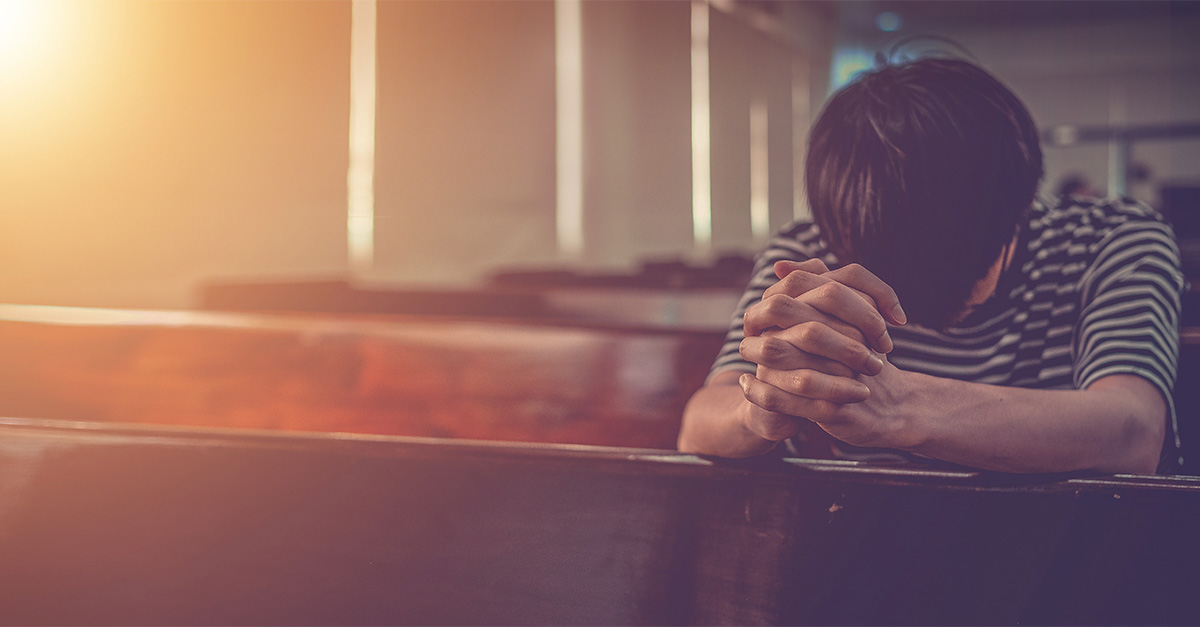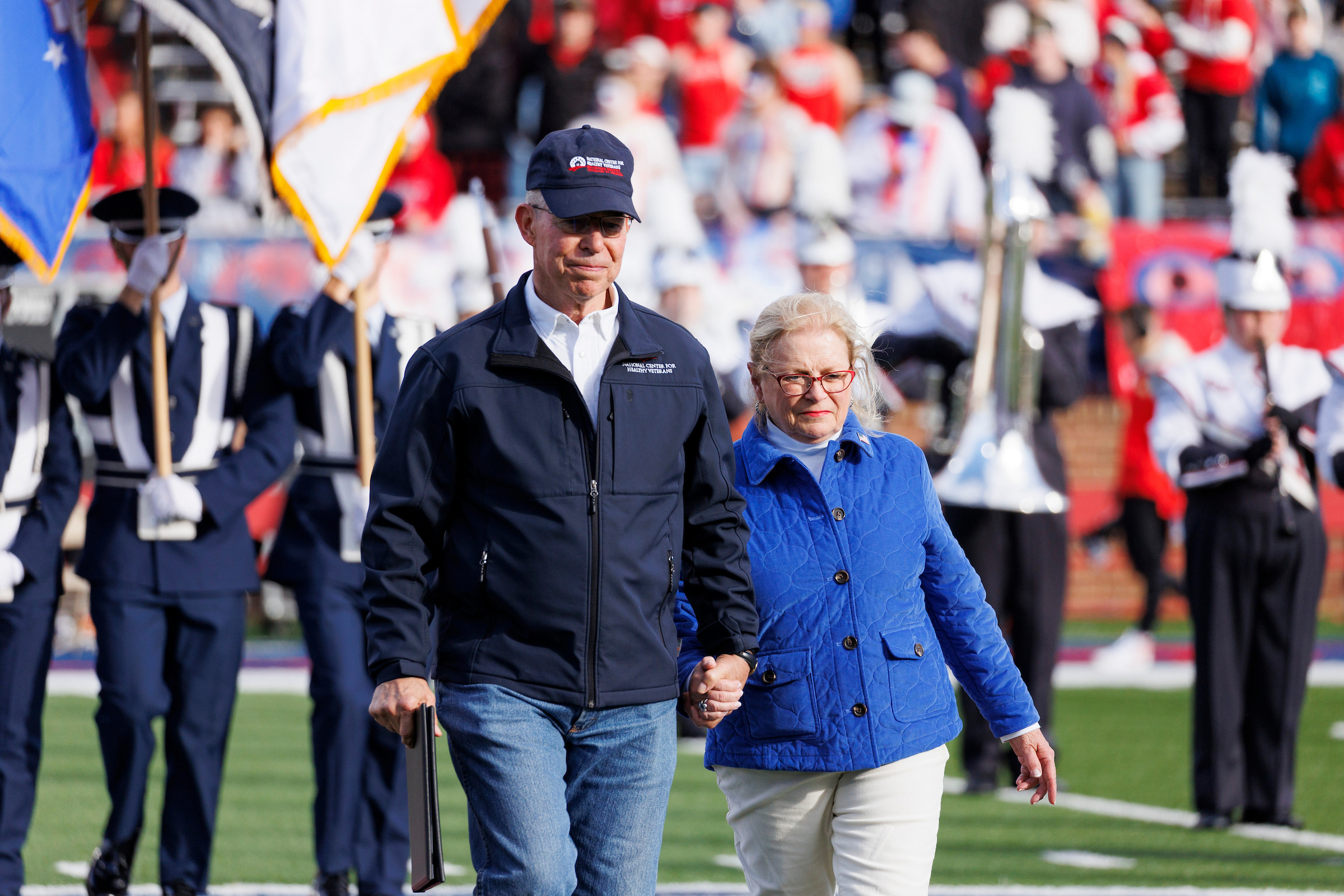


Get a free copy of Parental Rights & Education when you subscribe to our newsletter!

“I took my troubles to the Lord; I cried out to him, and He answered me.”
–Psalm 120:1
Last week Ronnie Floyd, a pastor and former president of the Southern Baptist Convention, called on American Christians to pray earnestly for America and for Israel in an article published in the Washington Times. He wrote:
“In these dangerous times, will America ask God for help? Anytime we ask God for help, we are dependent on God. Conversely, when we do not ask God for help, we are dependent on ourselves. America is on a rapid and deeply concerning descent.”
Floyd noted some of the challenges our nation is facing: the lack of a Speaker of the U.S. House of Representatives; the upcoming 2024 Presidential election; the chaos at the border, which is increasing human trafficking and drug trafficking; the heinous assault on Israel; and the existential crises America faces in the form of gender confusion and the disregard for the sanctity of human life.
He then pointed out the solution:
“What will it take for America to ask God for help? We cannot solve these problems on our own or we would have done so already. Only God can help us! America needs to ask God for help. The time is now. The hour is late. Now is the time.”
Citing Psalm 120:1, Floyd challenged America to turn back to God:
“Ask God to help you take this challenge to everyone, everywhere: America needs to ask God for help. Will you pray for America? Your friends, the members of your family, and all the churches across America must ask God now for help.”
He’s exactly right. America has turned away from God, and now America desperately needs God again.
Our churches need God.
Our children need God.
Our world needs God.
We all need God — every single day, to navigate every moment of our lives.
Now we are facing dark times, but dark times have a way of driving people back to God.
The Bible has many instances of the people of God facing hardship and crying out to Him for His deliverance.
The Israelites in the land of Egypt. Peter when he was drowning. Jairus when his daughter was sick. The early church’s prayer when Peter was held in prison.
In all of these instances, God delivered the person or people from their trials.
But there is one biblical figure who sticks out to me as a potential parallel for what America is currently facing. That person is King Hezekiah.
Hezekiah’s predecessor, his father, King Ahaz, was a very evil man who led Judah into sin. Because of Ahaz’s evil, God sent the kingdom of Aram and also the northern nation of Israel to kill many of those from Judah. When Ahaz faced more attacks from Edom and the Philistines, he and Judah did not repent of their sins and seek the Lord, but instead they sought help from the wicked king of Assyria. Here’s what 2 Chronicles 28:19-21 tells us about what happened next:
“For the Lord humbled Judah because of Ahaz king of Israel, for he had brought about a lack of restraint in Judah and was very unfaithful to the Lord. So Tilgath-pilneser king of Assyria came against him and afflicted him instead of strengthening him. Although Ahaz took a portion out of the house of the Lord and out of the palace of the king and of the princes, and gave it to the king of Assyria, it did not help him.”
Even after this, Ahaz sought false gods, and, as Verse 23 explains, “they became the downfall of him and all Israel.”
When Ahaz died, Hezekiah did not make the same choices as his father, but earnestly sought the Lord. In his first month as king he opened the doors of the house of the Lord and repaired them and called on the priests and Levites to consecrate themselves. Hezekiah implemented reforms and reinstituted temple sacrifices, and sacrifices for the sins of the nation were made. Hezekiah also reinstituted the Passover.
After Hezekiah instituted these and other changes to lead the nation to serve God, Judah once again faced impending war from Assyria. Sennacherib, king of Assyria, taunted God and Hezekiah and told the people of Judah that their God would not be able to protect them, just as other nations’ gods hadn’t.
Hezekiah and the prophet Isaiah then called out to God. Hezekiah took Sennacherib’s letter, went to the temple, laid it out before God, and pleaded for His deliverance.
After Hezekiah’s petition, he got a response. 2 Kings 19:20 reads,
“Then Isaiah the son of Amoz sent to Hezekiah saying, ‘Thus says the Lord, the God of Israel, “Because you have prayed to Me about Sennacherib king of Assyria, I have heard you.”’“
God answered Hezekiah, and He delivered him. The Angel of the Lord slew 185,000 Assyrians in their camp that night; Sennacherib returned home and, while praying in the temple of his false god, his own children killed him.
Following soon Hezekiah faced another terrifying trial, an illness which God told him would end his life. Once again, he called out to God, who heard his prayer and sent Isaiah to tell him the good news. 2 Kings 20:5-6 states,
“Return and say to Hezekiah the leader of My people, ‘Thus says the Lord, the God of your father David, “I have heard your prayer, I have seen your tears; behold, I will heal you. On the third day you shall go up to the house of the Lord. I will add fifteen years to your life, and I will deliver you and this city from the hand of the king of Assyria; and I will defend this city for My own sake and for My servant David’s sake.”’”
Like Judah, we need to repent of our sins and turn back to God. And like Hezekiah, we must recognize that we cannot handle these problems on our own. Yet the responsibility is on the people of God to repent and to pray. We cannot expect those who are lost to suddenly turn to Him. I know that I am guilty of spending far too little time praying for our nation and our world. What if we spent just some of the time that we currently spend watching TV, enjoying our interests, shopping, sleeping, or worrying in prayer for those around us. What if we confessed our sins and called on God to awaken our friends and neighbors to their own sins?
Our nation has enjoyed prosperity because of God’s mercy and because of its righteous founding. As President Ronald Reagan said in a ceremony for the National Day of Prayer:
“Prayer has sustained our people in crisis, strengthened us in times of challenge, and guided us through our daily lives since the first settlers came to this continent. Our forbearers came not for gold, but mainly in search of God and the freedom to worship in their own way.
We’ve been a free people living under the law, with faith in our Maker and in our future. I’ve said before that the most sublime picture in American history is of George Washington on his knees in the snow at Valley Forge. That image personifies a people who know that it’s not enough to depend on our own courage and goodness; we must also seek help from God, our Father and Preserver.”
In Ephesians 6:12, the Apostle Paul warned believers that the enemy we face is a spiritual one, and there is little doubt at this moment in time, we are in spiritual warfare, a war of good and evil, a war that requires God to prevail. Paul, under the inspiration of God, penned,
“For our struggle is not against flesh and blood, but against the rulers, against the powers, against the world forces of this darkness, against the spiritual forces of wickedness in the heavenly places.”
God will come to our aid, but as it was for Hezekiah and so many others, we have to ask Him. Will you ask Him today?
The Church must be involved in public discourse and influence. That’s why we write — so our readers can be equipped to understand and pursue righteous change in the world. For more timely, informative, and faith-based content, subscribe to the Standing for Freedom Center newsletter.
